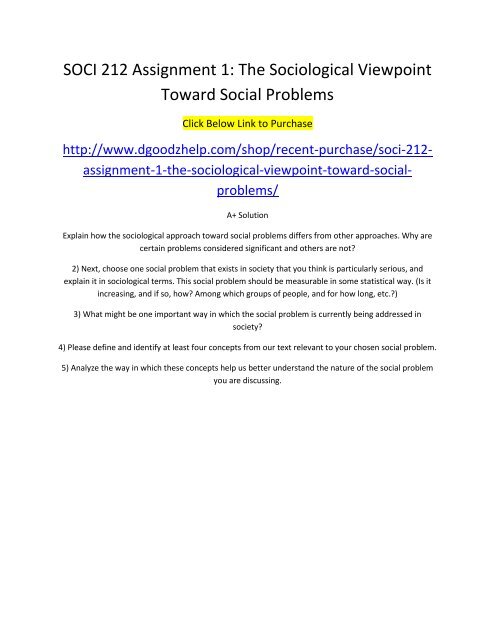Imagine a world where your voice, once a whisper in the wind, can be amplified to reach millions. This, in essence, is the power of social movements in the digital age. We see it every day, from the global #MeToo movement to local protests against environmental injustice. These movements are shaping our society, changing laws, and demanding accountability from those in power. But what makes them succeed? What are the driving forces behind these collective actions that can alter the course of history? This is where sociology, the study of human societies and social interactions, steps in to offer a powerful lens for understanding.

Image: www.yumpu.com
This blog post will delve into the fascinating world of contemporary social movements, exploring the ways in which they leverage social media, navigate challenges, and ultimately impact our world. We will analyze sociological perspectives on collective action, exploring topics like social networks, identity politics, and the role of media in shaping public discourse. By understanding the underlying dynamics of these movements, we can better comprehend their significance and discover how we, as individuals, can engage with them in meaningful ways.
The Age of Information: A Catalyst for Collective Action
The rise of social media has revolutionized the way social movements operate. Platforms like Twitter, Facebook, and Instagram have become powerful tools for mobilization, allowing individuals to connect, share information, and organize protests on a global scale. This digital landscape has democratized activism, giving voice to marginalized communities and fostering a sense of collective identity.
Take, for example, the Arab Spring uprisings that swept across the Middle East in 2011. Social media platforms became the primary avenues for disseminating information about government corruption and human rights abuses, connecting protestors, and coordinating demonstrations. The power of these platforms was undeniable, as they enabled previously fragmented voices to coalesce into a unified force for change.
However, it’s important to acknowledge the potential pitfalls of relying solely on online platforms. While they offer convenience and accessibility, they also pose challenges. The spread of misinformation and the creation of echo chambers can limit the range of perspectives and hinder critical dialogue. Furthermore, social media algorithms can reinforce existing biases and create filter bubbles, making it challenging to bridge social divides.
The Sociological Lens: Understanding the Dynamics of Social Movements
Sociology provides us with a framework for understanding the complexity of social movements. One key concept is social networks, which refer to the interconnectedness of individuals and groups. Social movements thrive on the presence of strong social networks, allowing for rapid communication, mobilization, and grassroots organizing.
Another crucial element is identity politics, which examines how individuals’ social identities – race, gender, sexuality, or class – influence their participation in movements. Social movements often focus on mobilizing around shared identities, demanding recognition and challenging systems of oppression. The Black Lives Matter movement, for example, has successfully leveraged its focus on racial justice to bring about significant change in the public discourse surrounding police brutality.
The role of framing in social movements is equally significant. Framing refers to the way in which activists present issues to garner public support. A successful frame will resonate with the values and beliefs of the intended audience, mobilizing them to action. The environmental movement, for instance, has effectively framed climate change as an existential threat, prompting individuals and governments alike to take action.
Navigating Challenges: The Struggle for Social Change
Social movements face numerous challenges, particularly in the face of powerful opposition. Government repression, media manipulation, and internal divisions all threaten to derail their momentum. Furthermore, the very success of a movement can lead to fragmentation and disillusionment as different factions emerge with competing priorities.
The resource mobilization theory, a prominent sociological perspective, sheds light on the importance of resources in shaping a social movement’s success. This includes access to financial resources, organizational infrastructure, and the support of influential individuals. However, it’s important to recognize that movements can also leverage intangible resources such as collective identity, shared values, and a powerful message of hope.

Image: www.teacherspayteachers.com
The Future of Social Movements in an Interconnected World
As we navigate an increasingly interconnected world, it’s crucial to understand the power and complexities of social movements. They have the potential to challenge the status quo, hold institutions accountable, and create positive change. However, it’s equally essential to confront the potential pitfalls and ensure that these movements remain inclusive, transparent, and driven by a shared vision of justice and equity.
Actionable Tips for Engagement: Making a Difference
- Educate Yourself: Gain a deeper understanding of the historical and current contexts of movements you care about. Read books, articles, and watch documentaries to broaden your perspective.
- Support Organizations: Contribute financially or volunteer your time to organizations aligned with your values. This can provide vital resources for research, advocacy, and community organizing.
- Use Your Voice: Speak out on issues you care about, whether it’s through social media, writing letters to your representatives, or participating in events. Your voice, however small, has the power to shape public discourse.
- Stay Informed: Critically evaluate the information you consume, recognizing that the media landscape is often filled with bias and misinformation. Seek out diverse perspectives and engage in constructive dialogue.
Sociology Current Event Assignment
Conclusion: The Power of Collective Action
Social movements are a testament to the power of human agency. They remind us that our voices, when united, can challenge injustice, bring about change, and create a more equitable world. By fostering a spirit of critical thinking, active engagement, and a commitment to social justice, we can all contribute to the ongoing evolution of these movements and their lasting impact on society.






